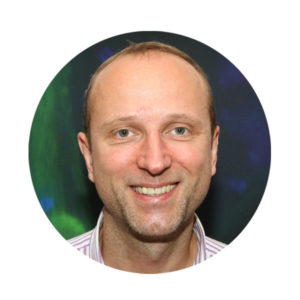The prevalence of suicide and self-harm in children and adolescence is a subject we should all be concerned with. For the 2019 Judy Dunn National Conference we have gathered together the leading academics, clinicians, and researchers in fields of self-harm and suicide, plus those who have lived experience.
Join us for the latest evidence-based research, lived experience examples, and interactive workshops.
Speakers
- Dr. Trudie Roussow ‘Evidence based treatment of young people who self-harm and management of risk’
- Prof. Dr. Paul Plener ‘Epidemiology of self-harm’
- Clare Stafford, CEO Charlie Waller Memorial Trust, ‘Breaking the Taboo – Talking about suicide’
- Keynote speaker, Prof. Christian Schmahl ‘Neurobiology of self-harm in BPD’
- Prof. Paramala J Santosh ‘Mobile applications and wearable devices in assessing suicide risk’
- Dr. Dennis Ougrin ‘Therapeutic Assessment for Self-Harm’
Includes
- Latest mobile health technologies for Suicide assessment
- The different brain morphology and neuronal activity of self-harm in Borderline Personality Disorder
- Assessing suicide risk
- Interactive workshops, including Therapeutic Assessment (TA) for Self-Harm
- Lived experience examples
About the speakers

Trudie is a child and adolescent psychiatrist, fully registered with the General Medical Council. With over 20 years of experience treating all child and adolescent mental health conditions, she currently works as a consultant psychiatrist at the Priory Hospital, Chelmsford and the North London Priory Hospital. She is also a qualified MBT-A therapist, supervisor, trainer and course leader and an honorary senior lecturer at University College London, as well as Clinic Director at Stepping Stones Clinic, London.

“I am thrilled, and honoured, to be delivering the Keynote at this year’s Judy Dunn National Conference. My lecture and discussion will focus on ‘Neurobiology of self-harm in BPD’. During my lecture I will explain the relation between emotion regulation and self-harm in BPD, explain the importance of disturbed pain processing in self-harming individuals, and investigate the role of tissue injury, seeing blood and the endogenous opioid system in the context of self-harm in BPD.”
Christian is a Professor of Experimental Psychopathology and Medical Director of the Department of Psychosomatic Medicine at the Central Institute of Mental Health in Mannheim, Germany. His research focus is on emotion regulation, self-injurious behavior and dissociation as well as the interaction of neurobiology and psychotherapy in Borderline Personality Disorder and Posttraumatic Stress Disorder. He received his M.D. in Germany at Mainz and Giessen Medical School and did his residency in Psychiatry at Freiburg Medical School and his residency in Psychosomatic Medicine at the CIMH. Since 2018 he is spokesperson of the Research Training Group “Impact of Adverse Childhood Experiences on Psychosocial and Somatic Conditions across the Lifespan”. He has published more than 200 articles and book chapters.

Clare Stafford is the CEO of the Charlie Waller Memorial Trust which was set up in 1997 in memory of Charlie Waller, a young man who took his own life whilst suffering from depression. CWMT raises awareness of depression and other mental health problems, fights stigma, provides education and training to schools, universities, workplaces, GPs and nurses, and encourages those who may be depressed to seek help.
Clare has over 25 years’ experience of managing and developing NHS mental health services including psychological therapies and specialist services. She was seconded to the Department of Health in 2008 as a Senior Policy Advisor for the National Personality Disorder Programme, developing evidence-based national policy guidance.
Clare has overseen a significant expansion of the Trusts’ work since 2014, especially in the support and training provided to schools, further education colleges and universities using a ‘whole institution’ approach. She is also Chair of the governing body of Cranbury College in Reading, an alternative provision setting for children and young people who have difficulty in mainstream schools.
“I am very much looking forward to the day to talk to you on such an important topic. I will draw on the evidence and meta-analysis information and how this translates into practice. During my discussion, I will be looking at practical strategies that can bridge the gap between the evidence and what happens in schools and other educational settings. Importantly, answering questions such as; How can the voluntary sector help in relation to the prevention of suicide and self-harm? How can we create a culture in schools, colleges and universities where suicide can be talked about?”

Paul currently works at the Department of Child and Adolescent Psychiatry, Medical University of Vienna.
“I am looking forward to the day immensely. I will be talking about Nonsuicidal Self-Injury. This is common in Westernised countries with around 25% of high school students having hurt themselves at least once during their lifetime. Although it is often undertaken without suicidal intent, is it considered as a risk factor for further suicidal behavior. Commonly it starts around the age of 12, peaking at 15, and begins to decrease in early adulthood. Join me as discuss this in more detail on the day.”
“I am also delighted to lead on one of the afternoon workshops ‘Crucial decision: assessing suicidality in clinical practice’. In this we will look at the assessment of suicidality presenting in everyday situations, especially in child and adolescent psychiatric emergency services. Although questionnaires and assessment tools have been developed in recent years to aid clinicians, clinical decision making on a case-to-case base cannot be substituted. Thus, assesssing for suicidality does not only include a thorough knowledge about risk factors, but also a decision on weighing these factors in order to come up with a result. The workshop aims at presenting some of the available instruments as well as knowledge about risk factors for suicidality and discuss examples based on case-vignettes. Participants will be able to share examples from their daily work practice in the round discussion.”

Paramala is a Consultant Child and Adolescent Psychiatrist who developed and heads the Centre for Interventional Paediatric Psychopharmacology and Rare Diseases (CIPPRD) at the Maudsley Hospital, London. A Visiting Reader at the Institute of Psychiatry, Psychology, and Neurosciences (IoPPN), King’s College London, he focuses on translational research. An international expert on Autism, developmental psychopharmacology, neuropsychiatry, paediatric neurodegeneration, suicidality, and the use of information technology to improve health delivery. His research includes the overlap of Autism, ADHD, and Bipolar Disorder; psychopharmacology and paediatric neurodegeneration in the context of Hunter syndrome, Hurler syndrome, Sanfillipo disease, Gaucher disease, Neiman-Pick Type C, Rett syndrome, and other diseases. He is recognised expert in the field of assessment and management of complex multiple co-occurring developmental disorders. Currently, Paramala is involved in research of comorbidity in Autism Spectrum Disorders, its assessment and management, as well as the MILESTONE project which looks at how to improve transition process and experience for young people from Child and Adolescent Mental Health Services to Adult Mental Health Services, in the UK and across Europe. Added to this he has also been involved in developing computerized assessment tools such as the HealthTrackerTM.

“I’ll be discussing Therapeutic Assessment (TA). TA is a brief intervention for young people presenting with self-harm in an emergency. The assessment consists of identifying the vicious cycle of self-harm in the form of a diagram, followed by a collaborative development of an ‘exit’, a way of breaking the cycle and moving forward. TA is linked with improved engagement with treatment compared with usual assessment.”
- Consultant Child and Adolescent Psychiatrist
- Graduated medical school in Ukraine in 1998 and came to England to undertake his post-graduate training.
- Completed higher training in child and adolescent psychiatry at Guy’s and Maudsley. Currently he is a consultant Child and Adolescent Psychiatrist leading Supported Discharge Service at South London and Maudsley NHS Foundation Trust.
- Clinical senior lecturer at the Institute of Psychiatry, Psychology and Neuroscience
- Leads a programme of information exchange between the UK and Ukraine.
- Main professional interests include prevention of Borderline Personality Disorder and effective interventions for self-harm.
- Author of Therapeutic Assessment, a novel model of assessment for young people with self-harm.
- Chief investigator of a randomised controlled trial of ‘Supported Discharge Service’ versus ‘Treatment as Usual’ in adolescents admitted for in-patient care.
- Principal investigator of a randomised controlled trial comparing intensive mental health intervention versus usual social care in Looked After Children.
- Working on developing a modular psychotherapeutic intervention for self-harm and on understanding the pathophysiology of self-harm in young people.


